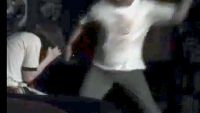Privacy concerns about an airborne armada of government drones recording the actions of Americans was at the forefront of a congressional hearing Thursday in Houston, but so far Texas law enforcement has had limited experience with the new technology.
U.S. Rep. Ted Poe, R-Humble, chaired the hearing to discuss his proposed law that would ensure the unmanned aerial vehicles will not be used by government agents to illegally spy on Americans or let people stalk their neighbors.
The Texas Department of Public Safety employed drones from 2008 to 2010, but halted their use due to operational costs and federal regulations that limited both flight areas and radio frequencies to control the aircraft, said regional DPS Commander Duane Steen.
The Montgomery County Sheriff's Office has still not received government approval to operate a $300,000 drone that crashed last year into a SWAT vehicle during a test flight.
"This is new technology, it's uncharted territory and we … want to make sure we're doing this the right way and the legal way," said Sheriff's Lt. Melvin Franklin, who explained the drone would be deployed in emergency situations or to search for missing persons.
FAA estimates
Poe, during a two-hour hearing Thursday at Rice University, heard from civil libertarians, scientists, legal experts and industry leaders on the impact of his Preserving American Privacy Act. The legislation would require law enforcement agencies to obtain a search warrant before conducting extensive surveillance after showing there was probable cause a crime was committed.
"With the increased technology of surveillance, we must be proactive in establishing guidelines and limitations in drone surveillance by law enforcement and other private citizens," Poe said as he opened the hearings. "Congress has the legal obligation to ensure that the Fourth Amendment rights of private citizens are protected in this new drone world."
Congress must implement rules and safeguards for drone use quickly, Poe said, noting the Federal Aviation Administration estimates that 30,000 drones could be flying by 2020 in the wake of federal legislation allowing the agency to widely expand drone use by December 2015.
Chris Calabrese, legislative counsel for the American Civil Liberties Union, told Poe and three other members of the House judiciary subcommittee on homeland security that the drones present a greater threat to the invasion of privacy because they are so much cheaper to buy and maintain than helicopters or airplanes. Some drones cost as little as $220 and weigh less than 25 pounds.
"This is a great start. We clearly want to begin with a constitutional framework … one that's based on you need a search warrant before you go on someone's property and look at them with a drone," Calabrese said.
Source of employment
Gretchen West, executive vice president of the Association for Unmanned Vehicle Systems, said the introduction of drones into the nation's airspace could add 23,000 new jobs by 2025. Her group of 6,300 members includes 225 in Texas, including BAE Systems, Lockheed Martin and Raytheon.
West noted that U.S. Customs and Border Protection uses unmanned aircraft to patrol the 1,200-mile Texas-Mexico border, and a number of a Texas energy companies want to use drones to monitor pipelines and other critical industry infrastructure.
She also warned not to sensationalize drone use, noting the estimate of 30,000 drones by 2020 may not be accurate. Most drones have a brief flight time that would make them unsuitable for lengthy surveillance, West added.
"We also steadfastly support Americans' right to privacy," she said. "And just like other new technologies, such as cellphones, GPS and even social networking websites like Facebook, a reasonable conversation about the implications of the new technology is entirely appropriate."
Call for transparency
Amie Stepanovich, counsel for the Electronic Privacy Information Center, supported the proposed protections and said the drone law should require public disclosure of who receives a drone license from the FAA.
"We really would like to see some transparency in this process," Stepanovich said. "The fact that licenses given out to drone operators are not made public is very concerning because nobody's really on notice of what technology is out there, where it can be used, and what surveillance equipment it carries."
































 Facebook
Facebook Twitter
Twitter LinkedIn
LinkedIn Newsletters
Newsletters RSS
RSS
